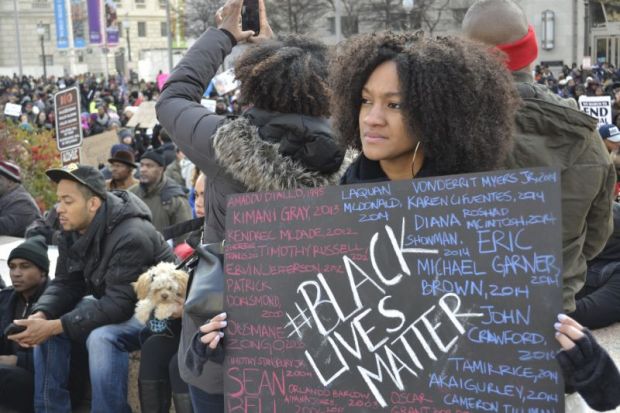Generation Z students rarely get to hear their lecturers teach or facilitate “safe” classroom discussions about racism, particularly outside of specialist modules. To talk about racism or even (institutional) whiteness has become almost taboo.
There is now a fairly extensive literature on the discomfort of having these conversations, most notably articulated in Reni Eddo-Lodge’s best-selling book Why I’m no Longer Talking to White People about Race and Robin DiAngelo’s White Fragility.
Thus it is perhaps unsurprising that institutions of higher education are making slow progress in “having conversations about race and changing culture”, despite this being the second of the five key recommendations in the recent Universities UK and National Union of Students joint report Closing the Gap.
Ironically and sadly, institutions seem to be far more comfortable talking about black and minority ethnic (BAME) attainment gaps, which I and many other academics of colour (including Claire Alexander and Jason Arday; and Gurminder Bhambra, Dalia Gebrial and Kerem Nişancıoğlu) have argued tend to perpetuate centuries’ worth of colonial and racialised discourse about black and brown (student) bodies as inherently inferior. Universities are less willing to talk about institutional racism and whiteness.
Perhaps what is required is a more fundamental, bottom-up approach from us lecturers.
We know that in an era where HEIs are subject to the logics of the neoliberal marketplace, the student voice through the National Student Survey and other channels is increasingly powerful.
Some universities have responded to various student-led campaigns from the NUS’ Why Is my Curriculum White? to Rhodes Must Fall on the University of Cape Town campus with inclusive curriculum frameworks, pledges and other initiatives aimed at addressing student success and satisfaction. But what are the conditions for Generation Z – particularly those affected by racialised and heteropatriarchal as well as other disadvantages in society – to really thrive during and flourish as a result of their degree courses?
After years of teaching a core module on public law to almost 500 first-year students and an optional module on race, religion and law to final-year students, it became increasingly apparent how, as Ambalavaner Sivanandan, director emeritus of the Institute of Race Relations, states, “the function of knowledge is to liberate”.
Year after year, students would reiterate that they wanted to know more about the Haitian revolution (1790-1804) as a “slave revolution”.
They wanted to know more about Britain’s self-congratulatory narratives about its role in the abolition of the transatlantic slave trade, which have glossed over and largely absented the commodification of stolen black bodies from Africa into objects of compensation through English insurance law.
They wanted to know more about how this is still enmeshed with different areas of law, British wealth and even universities, as purveyors of skewed partisan knowledge.
They wanted to talk about police brutality and Black Lives Matter, Windrush and immigration, legal definitions of Islamophobia, and antisemitism.
They wanted to learn about critical race theories and black feminism, and about the tools needed for self-empowerment and actualisation. My students want to defy attainment gap statistics that thrust them yet again into the national consciousness as a “problem” needing to be solved.
Through my work at the Kent Law School’s Centre for Sexuality, Race and Gender Justice, I facilitated the beginning of the Decolonising the Curriculum Project (DtCP), which has expanded beyond my course, attracting students from other modules and across faculties.
The aim was to empower BAME students to develop their self-confidence, trust in staff and sense of belonging by upskilling them to become co-producers of knowledge and stronger stakeholders in their own education.
After training, the students ran focus groups in safe cafe-style spaces. This enabled students to share their experiences with other students, to talk about racism and (un)belonging on campus as well as (dis)ability, gender, sexuality and being from minority religious/cultural backgrounds, whether in the classroom or through the curriculum.
They collated their research findings into a manifesto that they launched in March this year, alongside eminent academics in the field, to an audience of more than 200 people.
The project inspired a chain reaction of achievements and events, including a series of podcasts (Stripping the White Walls) that was picked up by UUK, and the presentation of the manifesto to a hands-on masterclass training session for staff on diversifying your curriculum (Building the Anti-Racist Classroom Collective), and students being recognised for their “outstanding contribution to equality, diversity and inclusivity” at the 2019 Kent Student Awards.
This project has given students the opportunity to experience the joy of participation, to form communities in learning and, crucially, to trust academics (of colour). They have also gained lifelong skills that they can take into further study and future employment.
This is a very different way to engage with students that allows them to see themselves as stakeholders in their own education rather than being represented as quantitative data – BAME attainment gap statistics – in university diversity reports that fail to capture the nuance and complexity of their lived realities.
This progress also requires lecturers to get involved in more meaningful ways despite the fatigue and overwork. The student DtCP manifesto identified a number of key actions to enhance institutional practice and student learning:
Establish something similar to KLS’ Kaleidoscope Network of BAME staff and students as well as allies in order to:
- Organise activities that are student led but outside the students’ union to encourage and foster student belonging
- Expand university consultation (working with the library/education boards and suchlike)
- Develop training and resources such as “On how to be a good ally”.
Establish a BAME staff forum supported by the university executive group and deputy vice-chancellors with the race and religion equality champions remit to facilitate:
- Working with students directly to tackle racism on campus
- Developing an institutional strategy (and KPIs for transparency and accountability) on BAME staff recruitment, retention and recognition; institutional cultural competency/whiteness (having conversations about race and change culture); and BAME student attainment and belonging on campus
Universities might not be having the productive conversations about race (institutional whiteness/racism) or making real cultural change, but students are – and we as lecturers can facilitate them to do that. The Decolonising the Curriculum work is currently being compiled for a book to be launched in March 2020. Watch this space, and don’t wait for someone else to take the lead, get involved!
Suhraiya Jivraj is a senior lecturer in law at Kent Law School at the University of Kent.
Register to continue
Why register?
- Registration is free and only takes a moment
- Once registered, you can read 3 articles a month
- Sign up for our newsletter
Subscribe
Or subscribe for unlimited access to:
- Unlimited access to news, views, insights & reviews
- Digital editions
- Digital access to THE’s university and college rankings analysis
Already registered or a current subscriber? Login




